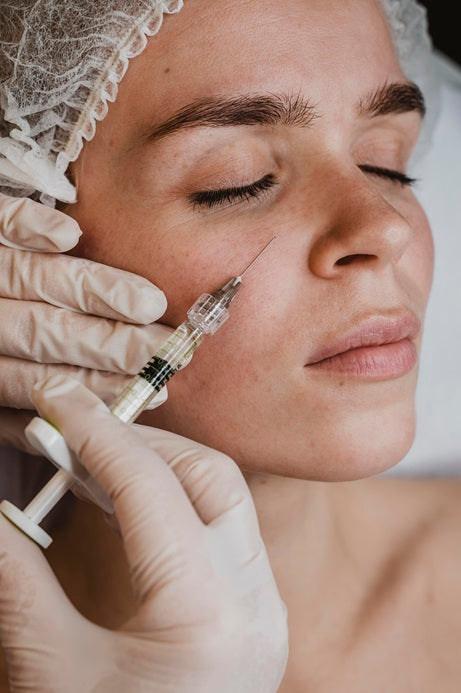
What Are Exosomes & Polynucleotides?
Exosomes and polynucleotides are advanced treatments that are helping to change skin rejuvenation and anti-ageing care. Exosomes are tiny natural messengers that help skin cells repair and renew, while polynucleotides are long DNA molecules that support healing, hydration and collagen production. Together, they work with the body’s natural processes to repair, regenerate and refresh the skin. Their growing use in modern aesthetics shows how science and beauty are coming together to create safe, effective and well-researched treatments.
How Do Exosomes & Polynucleotides Work?
Exosomes and polynucleotides are key in modern aesthetic treatments, especially for skin rejuvenation and anti-ageing.
Exosomes support cell-to-cell repair by sending signals that help the skin heal and renew. Polynucleotides help the skin produce more collagen and elastin, which improves firmness and elasticity. Both also increase hydration, smooth texture and give the skin a plumper, healthier look.
By boosting cell regeneration, they help repair damage from daily environmental stress. Because they work with the skin’s natural processes, the results look natural, balanced and effective. Together, these treatments target several signs of ageing and offer a reliable way to achieve fresher, more youthful skin.
What Can Exosomes & Polynucleotides Be Used For?
Exosomes and polynucleotides offer wide skin benefits by supporting natural repair and renewal. They help reduce fine lines, wrinkles and sagging, while improving hydration, texture and overall smoothness. These treatments also support cell regeneration, which helps repair sun damage, soften scars and reduce uneven pigmentation. They strengthen skin elasticity in delicate areas such as the under-eyes and neck, and boost overall skin health for a fresher, more rejuvenated appearance.
What is the difference between exosomes, polynucleotides and skin-booster injections?
Exosomes and polynucleotides can hydrate the skin, support deep regeneration and stimulate fibroblasts to boost collagen and elastin. Skin boosters also hydrate and plump the skin, but they do not repair or regenerate tissue, and their results are more short-term.
FAQs
How long do the results from Exosomes & Polynucleotide treatments last?
Results from exosomes and polynucleotide treatments usually last between 6 and 12 months, depending on your skin and your treatment plan. These treatments continue to work beneath the surface, so results build naturally over time. Maintenance sessions are often recommended to keep and enhance the long-term rejuvenating effects.
Are there any side effects associated with Exosome & Polynucleotide treatments?
Exosome & Polynucleotide treatments are generally well-tolerated, with minimal risk of side effects. Some individuals may experience mild redness, swelling, or bruising at the injection site, which usually resolves within a few days. It is important to follow aftercare instructions to minimise any potential side effects.
Can Exosomes & Polynucleotide treatments be combined with other aesthetic procedures?
Yes, Exosomes & Polynucleotide treatments can be effectively combined with other aesthetic procedures, such as dermal fillers, Botox, or skin resurfacing treatments. Combining therapies can address multiple skin concerns and enhance overall results. Your practitioner will provide personalised advice on the best combination of treatments for your needs.
How many sessions of Exosomes & Polynucleotide treatment will I need?
The number of Exosome & Polynucleotide sessions required varies based on your individual skin concerns and goals. Typically, an initial series of 2 to 4 treatments spaced about 4 weeks apart is recommended, with maintenance sessions every 6 to 12 months to sustain the results. Your practitioner will tailor the treatment plan to suit your specific needs.